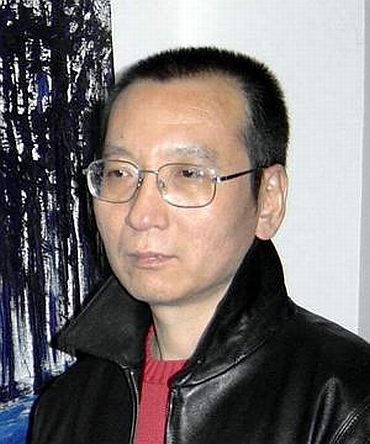 The Nobel Peace Prize 2010 was on Friday awarded to Liu Xiaobo�"for his long and non-violent struggle for fundamental human rights in China".
The Nobel Peace Prize 2010 was on Friday awarded to Liu Xiaobo�"for his long and non-violent struggle for fundamental human rights in China".
For over two decades, Liu Xiaobo has been a strong spokesman for the application of fundamental human rights also in China.
He took part in the Tiananmen protests in 1989; he was a leading author behind Charter 08, the manifesto of such rights in China, which was published on the 60th anniversary of the United Nations' Universal Declaration of Human Rights, the 10th of December 2008.
The following year, Liu was sentenced to eleven years in prison and two years' deprivation of political rights for "inciting subversion of state power".
Liu has consistently maintained that the sentence violates both China's own constitution and fundamental human rights.
The campaign to establish universal human rights also in China is being waged by many Chinese, both in China itself and abroad.
Through the severe punishment meted out to him, Liu has become the foremost symbol of this wide-ranging struggle for human rights in China.
While in prison, he was nominated for the Nobel Peace Prize, a fact of which he was made aware by his lawyer.
Over the past decades, China has achieved economic advances to which history can hardly show any equal.
The country now has the world's second largest economy; hundreds of millions of people have been lifted out of poverty. Scope for political participation has also broadened.
China's new status must entail increased responsibility.
China is in breach of several international agreements to which it is a signatory, as well as of its own provisions concerning political rights.
Article 35 of China's constitution lays down that "Citizens of the People's Republic of China enjoy freedom of speech, of the press, of assembly, of association, of procession and of demonstration".
In practice, these freedoms have proved to be distinctly curtailed for China's citizens.
Also Read:
Peruvian author Mario Vargas Llosa wins Nobel Prize for literature
Meet the 2010 Chemistry Nobel winners
Men who showed power of carbon win Physics Nobel�
Test-tube baby pioneer wins 2010 Medicine Nobel
Photograph: Wikimedia Commons





